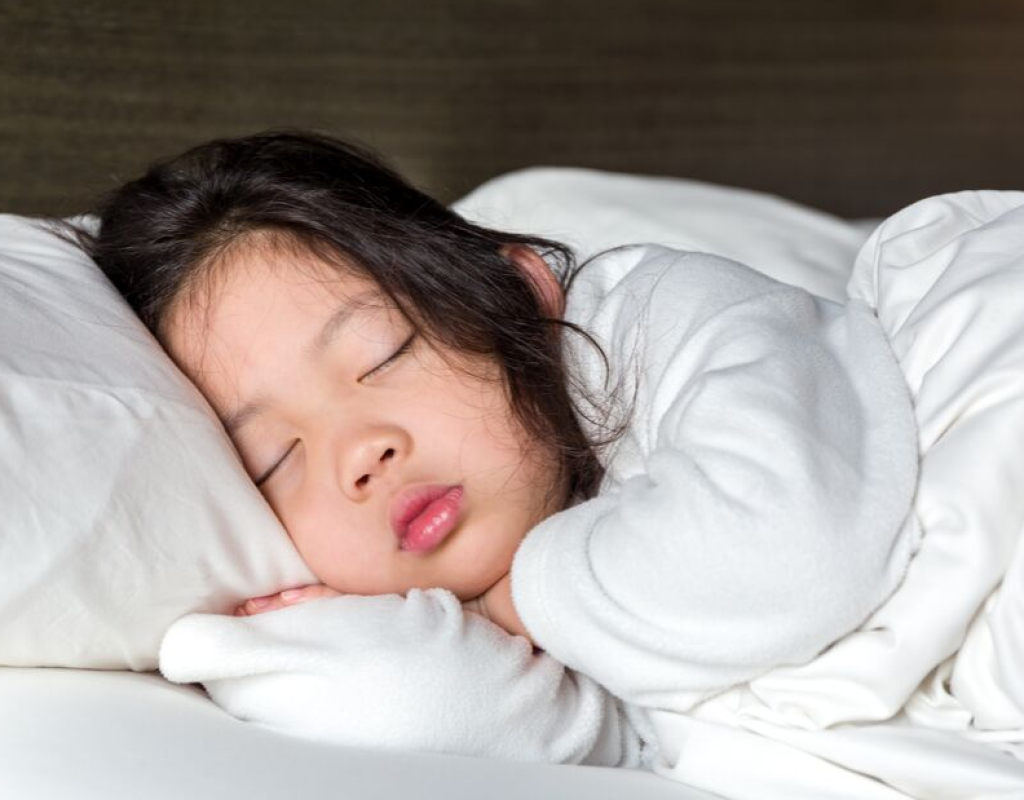Why Sleep is So Important
Sleep is vital for everyone’s health — but especially for kids since it affects their mental and physical development and well-being. Without sufficient sleep, children can experience increased irritability, stress, forgetfulness and decreased energy, focus/attention problems, troubles with memory retention and motivation issues. Over time, lack of sleep can contribute to anxiety and depression. Studies have linked poor sleep to behavioral problems and poor academic performance grades in classes such as math, reading, and writing.
Furthermore, sleep deprivation can lead to slowed or stunted growth. Growth hormone production can also be disrupted in kids with certain physical sleep problems. For children who fail to produce enough growth hormone naturally, lack of sleep makes the problem worse.
Children who don’t get enough sleep can show other hormone level changes too. Insufficient sleep can impact the hormones that regulate hunger and appetite, causing a child to overeat or overindulge in high-calorie sweets. A shortage of sleep can affect the way the body metabolizes these foods, triggering insulin resistance, which is linked to type 2 diabetes.
How to Build a Better Sleep Routine
Your child’s bedtime routine is the key to both sleep quality and duration. Here’s how to provide for both:
- Set a consistent bedtime and wake time that allow for sufficient sleep
Sticking to a set bedtime provides a child with security and predictability. Kids of all ages (and grown-ups, too) should ideally go to sleep and wake up around the same times every day, including weekends. For teens, this means discouraging sleeping in, which can disrupt circadian rhythms and make weekday sleep more challenging. For younger kids, bedtimes should be early – before 9pm – to ensure that they get enough sleep. - Stick to the same bedtime routine
For some children, the bedtime routine begins at dinner followed by bath, story time, teeth brushing and bed. If you have an infant, your routine may as simple as reading the same book or singing the same song every night before bed. If you have a toddler or an older child, you can work together to form their bedtime plan. Having your child help with bedtime decisions, like how many books you will read together and what the lights out routine will be, allows them to feel in control and increases the likelihood of their complying with the schedule. Review and rehearse the plan before you begin so that it is easier for your child to follow and for you to stick to. - Create a relaxing sleep environment
A peaceful environment promotes good sleep. Remove distracting toys, use window shades to darker rooms- especially during the summer when the sun sets later, and introduce white noise. Turn off screens at least 1-2 hours prior to bed – light from a television, phone, or computer can interfere with the production of the hormone melatonin, which is important for proper sleep. Make the bedroom a screen-free zone. - Let child fall asleep on his or her own
Research has shown that children who need a parent present to fall asleep wake up more during the night. The key to healthy sleep is having your child fall asleep on his or her own. Infants and children should be put to bed when they appear tired but still awake. Parents should avoid getting into bed with a child in order to get them to sleep. This may mean breaking bad habits that have already been formed. If you’ve unintentionally reinforced poor sleep habits, and your child (and your!) sleep is suffering, don’t worry: they can be fixed.
Check out this helpful post on fixing bedtime mistakes!
Sleep Disorders
Sleep disorders in children and adolescents are common; even infants may suffer from them. Sleep problems are classified into two major categories: dyssomnias (including sleep-onset difficulties, snoring and obstructive sleep apnea) and parasomnias (including sleepwalking, night terrors, and nightmares).
Some sleep issues can be easily remedied with behavioral changes, while others may point to an underlying health issue. If your child shows any of the below signs of a sleep disorder, it’s a good idea to make an appointment with your pediatrician:
- Snoring unrelated to an illness
- Breathing pauses during sleep equal to or greater than 10 seconds
- Prolonged difficulty falling asleep
- Problems with sleeping through the night
- Difficulty staying awake during the day
- Unexplained decrease in daytime performance
- Unusual events during sleep such as sleepwalking or nightmares
Sleep one of the fundamental necessities for physical and mental health and happiness for both children and adults. As always, feel free to speak with us at the office if you need help assessing and/or addressing your child’s sleep.




